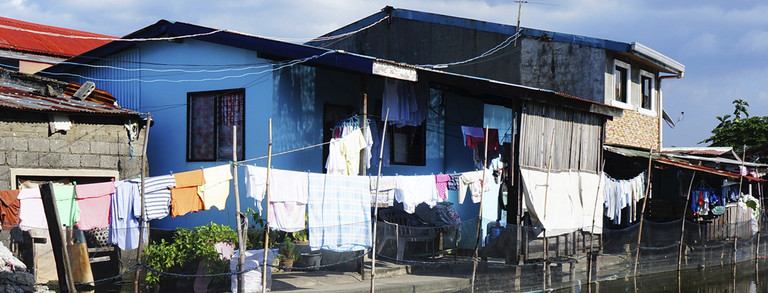Bangkok Metropolitan Area
Bangkok has considerable experience with slum-upgrading and social housing projects for the urban poor since the 1970s (Bhatkal and Lucci 2015). However, until today, an estimated 25% of the urban population of Thailand remains living in slums or informal settlements (World Bank, 2020), and 30% communities in Bangkok were defined as informal settlements (BMA, 2018).
Accordingly, Bangkok and its hinterland are appropriate research sites to learn from decade-long experiences and to exchange with Metro Manila given its awareness on spatial planning-based disaster risk management. Though Thailand has different development capacities due to its socio-economic performance, it has less concrete disaster risk management regulations and enforcement than the Philippines and particularly Vietnam.
Additionally, the country struggles to address pressing trends such as social inequality, an ageing society, and environmental degradation. In the light of the projected growth of Thailand’s urban population from 50% today to 70% by 2050 (UNDESA, 2018), the vulnerability of urban systems and the resilience of Bangkok’s informal settlements are central challenges.





